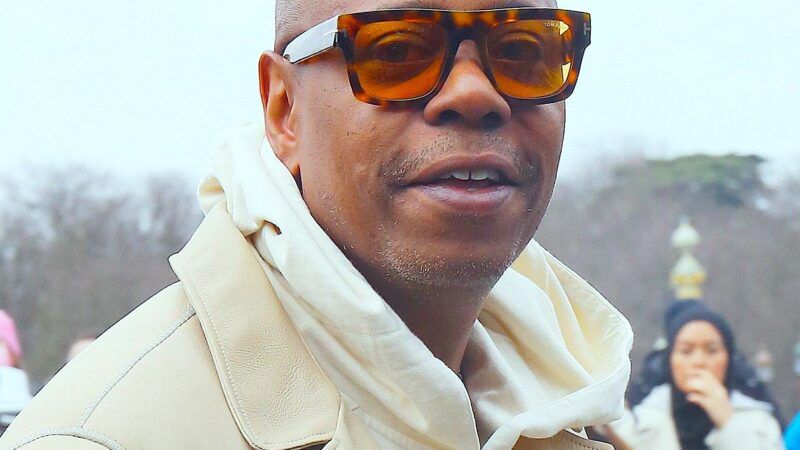Venue Cancels Dave Chappelle Performance, Vows To Become 'the Safest Space'
"We hear you and we are sorry."

First Avenue, a concert venue in Minneapolis, Minnesota, canceled a planned performance by comedian Dave Chappelle—mere hours before he was slated to take the stage.
The venue explicitly cited criticism from progressives, who view the platforming of Chappelle as an act of violence against the transgender community, given his jokes about this group.
"To staff, artists, and our community, we hear you and we are sorry," wrote a spokesperson for First Avenue in a statement. "We know we must hold ourselves to the highest standards, and we let you down."
The statement goes on to describe First Avenue venues as "the safest spaces" in the country.
"We believe in diverse voices and the freedom of artistic expression, but in honoring that, we lost sight of the impact this would have," noted the venue's organizers.
We hear you. Tonight's show has been cancelled at First Avenue and is moving to the Varsity Theater. See our full statement for more. pic.twitter.com/tkf7rz0cc7
— First Avenue (@FirstAvenue) July 20, 2022
First Avenue can invite and disinvite whomever it wants, of course. But it's hard to see this move as anything other than cowardly and counterproductive.
For one thing, canceling the performance does not even accomplish the narrow goal of stopping Chappelle from speaking. As the statement noted, the performance was merely being transferred to an alternative location—and all ticket holders will be able to watch him there. If ever there was an example of virtue signaling, this is it.
Then again, is it really virtuous to punish a comedian for engaging in transgressive artistic expression? First Avenue never used to think so. The venue is featured heavily in Prince's film, Purple Rain, and was known for promoting artists who defied boundaries and flouted social conventions. Today, First Avenue is afraid of offending a small number of hypersensitive progressives.
The cancel-Chappelle crowd is probably greatly outnumbered by the crowd that thinks trying to silence offensive comedy is a silly proposition. Indeed, First Avenue is likely to receive even more negative attention now while simultaneously ensuring Chappelle himself a larger crowd, more attention, and some new material. There is a Streisand effect to all of this: The lame attempts to get Chapelle in trouble are too weak to succeed and, in fact, only make him a bigger star.
"The more you say I can't say something, the more urgent it is for me to say it," Chappelle says in his recent Netflix special, What's in a Name? "And it has nothing to do with what you're saying I can't say. It has everything to do with my right, my freedom of artistic expression."
Netflix, which employs Chappelle and recently added an "artistic expression" policy to its employee handbook, has the right of it: If you're bothered by provocative material, maybe the entertainment business isn't for you.
